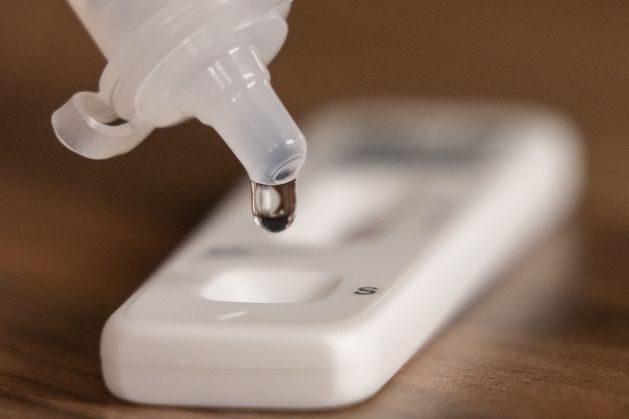Bussiness
Summer Covid wave continues to surge with outbreaks from hospitals and weddings

The Health Protection Surveillance Centre said 650 confirmed Covid cases had been notified last week, an increase of 48pc compared 440 in to early June.
Across hospitals 306 patients were diagnosed with Covid – up 62pc, although most were being treated for other illnesses.
The watchdog said 395 hospital inpatients had the virus yesterday morning, compared to 226 on Tuesday last week.
Due to limited testing, the real level of infection is unclear.
There have been 20 outbreaks associated with acute hospitals, 14 outbreaks in nursing homes and 12 in other residential institutions.
The JN.1 Covid variant variant in Ireland, including its descendants nicknamed FLiRT, are dominant here.
GPs are also reporting patients reporting symptoms after attending summer weddings and other get togethers.
To date, intensive care admissions due to Covid have remained stable during this wave and there is no evidence of a more severe strain.
The watchdog urged ongoing vigilance for symptoms of Covid and steps need to be taken to prevent spread, in both the community and in healthcare settings to protect the most vulnerable.
It said the JN.1 variant was currently the predominant variant in Ireland and globally and there was “no evidence of a new SARS-CoV-2 variant associated with more severe disease.
“However, as in previous waves, when Covid circulation increases, some level of increase in people experiencing severe disease does follow,” it added.
Increased circulation in the community also results in an increase in outbreaks in nursing homes, hospitals and other healthcare settings putting vulnerable patients at risk of infection.
There is also the risk of developing long Covid.
The advice is that if you have any symptoms of Covid, even mild ones, stay at home until 48 hours after your symptoms are mostly or fully gone. You should also avoid contact with other people, especially people at higher risk from Covid.
Virologists are using the term FLiRT to describe a family of different variants — KP.2, KP.3, JN.1.7, JN.1.1, and KP.1.1.
They are all descendants of the JN.1 variant that has been dominant here for the past few months. It was called Juno.
According to the US university John Hopkins, FLiRT doesn’t appear to have any new specific symptoms.
The period of infectiousness also remains the same as JN.1 and previous Omicron variants.
There is currently no evidence that FLiRT is any more of a threat than previous strains.










